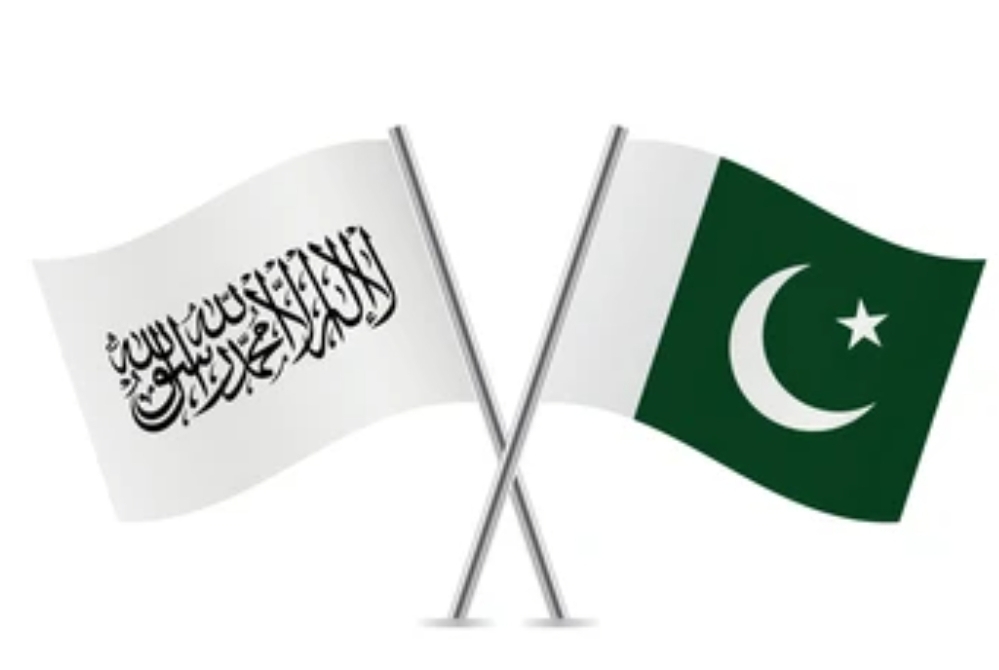Pakistan Unlikely to Succeed in Bid to Encircle Afghanistan
 Michael Hughes
Michael Hughes
January 3, 2025
Islamabad appears to be laying the groundwork for regional partnerships to strangle Afghanistan from all sides as tensions escalate with the Taliban over cross-border attacks resulting in decade-high deaths of Pakistani troops. However, although Pakistan has found a willing ally in Tajikistan, it will be harder to secure cooperation from other actors in the region reluctant to fuel full-fledged conflict.
Pakistan’s two-legged strategy envisions putting pressure on Afghanistan from the outside while anti-Taliban resistance works on the inside to collapse Kabul and Kandahar. Recent airstrikes by Pakistan have sent the tensions with the Taliban to all-time highs. Islamabad claimed the attacks against targets in Paktika province killed over 70 terrorists, while the Taliban said 46 people, mostly women and children, were left dead. The December 24 bombing campaign came in the wake of TTP attacks that killed 16 Pakistani security personnel on December 21.
The UN called for a probe into the incident, indicating that “credible reports” backed up the Taliban’s version of events. UNICEF said reports suggested that at least 20 children were killed in the bombings, while the Taliban have admitted it had already facilitated reprisal attacks against Pakistan.
During an address in Islamabad Pakistani Prime Minister Shehbaz Sharif issued a belligerent admonishment that suggested the road ahead could get even more rocky.
“The Taliban has resurfaced, and we cannot move forward without crushing this menace,” Sharif said as quoted by India Today on January 3. “Every day, there is a new incident. Whether it is 10 officers, 5, or members of the Frontier Corps, police, or the Army, their martyrdom represents the ultimate sacrifice. We must honor them and convey to the nation that defeating this monster is our shared target.”
Despite Sharif’s bravado, recent developments underscore the downside of taking hasty unilateral action in addition to the pitfalls of lacking specific intelligence on the ground. Air power alone will not defeat the Afghan-based insurgents, nor will the current approach topple their benefactors. To execute an optimal encirclement strategy, Pakistan will need to convince the other neighbors bordering Afghanistan – Tajikistan, Turkmenistan, Uzbekistan, Iran, and China – to either join a military alliance or, at a minimum, afford Pakistani forces a base to launch attacks.
Tajik President Emomali Rahmon and Pakistan’s ISI chief met in Dushanbe this week to discuss antiterror cooperation. Rahmon is interested in rooting out Jamaat Ansarullah, an Afghan-based terror group that wants to topple his government. Tajikistan hosts the National Resistance Front (NRF), a group the ISI is reportedly hoping to strike a strategic relationship with to counter the Taliban. It would be a monumental and ironic step given Pakistan had opposed the Northern Alliance, which was backed by Tajikistan, Russia, India, and Iran.
Turkmenistan, for its part, has developed a solid economic working relationship with the radical peers in Kabul. Turkmenistan’s strategy appears focused on building ties to protect core interests including border security, energy, and joint use of water resources. The two sides are collaborating on the TAPI gas pipeline, a $10 billion project to transport natural gas from Turkmenistan to Pakistan and India via Afghanistan. The pipeline is designed to span over 1,100 miles – with over 500 passing through Afghanistan. In addition, Ashgabat is keen to promote the Lapis Lazuli Corridor. In the end, it is hard to imagine Turkmenistan supporting Pakistan’s cause.
Uzbekistan has also deepened economic relations with the Taliban. Uzbek leaders have signaled a desire to expand trade, transit, and mineral extraction in Afghanistan. Uzbek trade with Afghanistan in 2023 soared six-fold to $266 million, and Tashkent earlier this year unveiled 35 investment and trade agreements worth $2.5 billion.
Although China is a key Pakistani ally, Islamabad will be hard-pressed to convince Beijing to take a strong anti-Taliban position anytime soon. In fact, relations between China and Afghanistan are only growing stronger. Afghan-Chinese trade in 2023 increased 125% to $1.3 billion. In October, Beijing offered the Taliban tariff-free access to China’s consumer, energy, and construction sectors in an effort to help Afghanistan strengthen penetration of foreign markets.
Tehran has good reasons for wanting to curb Afghan-based terror groups and the Taliban, who have been complicit in undermining Iranian security. Yet, ties between Iran and Pakistan are not much better – as evidenced by the two countries bombing each other’s border regions earlier this year. Although Tehran and Islamabad quickly de-escalated and have focused on mending ties, they are a long way from counterterrorism cooperation.
Pakistan is bedeviled by the same sanctuary strategy it employed to aid the “Good Taliban” – an entity the ISI created. Rawalpindi’s Frankenstein monsters and ilk are now plaguing Central and South Asia. For now, aside from Tajikistan, regional actors, fearful of exacerbating the security situation, will likely let Pakistan reap the seeds it has sown.
